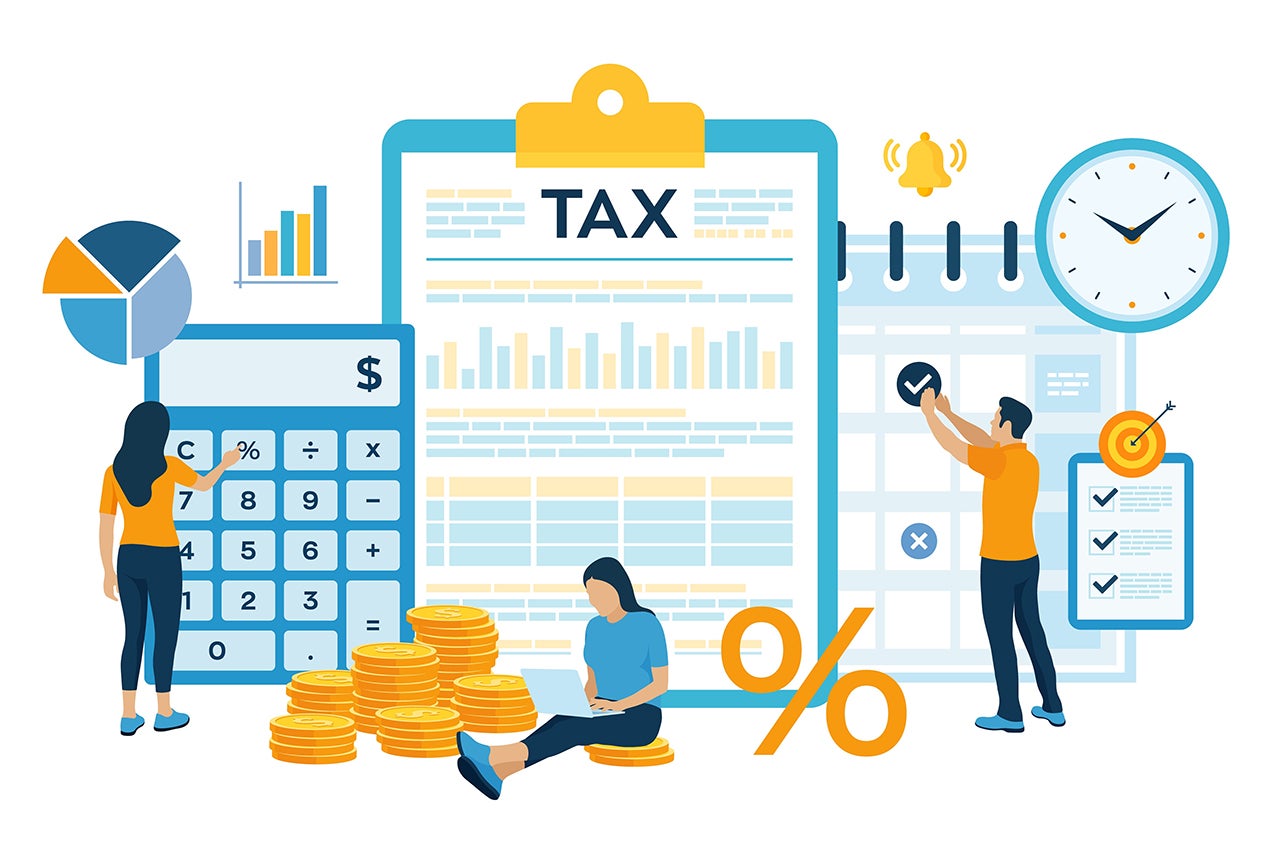For most of us, preparing our taxes is really … well, taxing. Fortunately, we have people like Thomas Spade ’07 (M.S.), instructor of accounting in the Department of Accounting and Business Law, to provide expert advice during tax time.
The College Today sat down with Spade to find out what College of Charleston faculty and staff need to know about preparing their 2020 tax returns. Here’s what he had to say.
What is different for tax year 2020?
2020 was a different year in many ways, and taxes were no exception. First, the filing deadline for federal and South Carolina returns this year is May 17, not April 15, as a result of some recent tax law changes affecting 2020. The first two stimulus payments are also different, as they were advance payments toward a tax credit on the 2020 return, which I’ll talk about a little later. Also, if you (or your spouse) received unemployment benefits last year, then they will not be taxed on them at the federal level. However, as of right now, South Carolina still taxes unemployment benefits. I’ve heard that the legislature is planning to discuss this before the end of the legislative session, but as of right now, they’re still taxable.
In accordance with the Affordable Care Act (ACA), the College is now providing form 1095-C to all full-time employees who were employed at the College during calendar year 2020. What do full-time CofC faculty and staff need to know about this form and how will it affect their tax returns?
The forms 1095-C are required to be issued by the Affordable Care Act, but for 2020, they won’t affect anything. Here’s why: Form 1095-C is used to report that you were offered health insurance coverage. In prior years, this was used to determine if you had to pay a penalty for not carrying coverage. But in 2020, there’s no penalty for not carrying essential coverage. In other words, Congress got rid of the penalty, but not the employer reporting requirement. But there are discussions in Congress about bringing back the penalty for not carrying minimum essential coverage. Stay tuned.
RELATED: Find out how to access and print your W-2 and 1095-C forms directly from MyCharleston.
Are there any changes to tax credits for 2020? What credits should taxpayers pay special attention to this year?
Remember the first two “stimulus payments” you may have received in April/May of 2020 and in early 2021? Those were actually advance payments of a tax credit on the 2020 return called the Recovery Rebate Credit. Here’s how it works: The payments you may have received were calculated based on the last return filed with the IRS. And then, when you prepare your 2020 return, you have to go back and re-calculate how much they should have been. If the payments you received were exactly what you should have received, then you don’t have to do anything. If the payments were less than what you should have received, then you get to take the difference as a refundable tax credit on your tax return, treated just like taxes taken out of your paycheck. And if you got more than you should have received, you don’t have to pay the difference back.
Many of us spent the majority of 2020 working from home. Are there any home office credits/deductions/other tax benefits we can take advantage of?
There are not. Use of a portion of your home “exclusively for business” when you are an employee is no longer tax deductible; it was one of the deductions that went away with the Tax Cuts and Jobs Act in exchange for an increased standard deduction. Besides, even under the old rules, it had to be used exclusively for business with no personal use whatsoever to qualify. So no, there’s nothing for home office.
I will warn everyone, though, that if you are preparing your own return, you will see a home office deduction in online tax software. It’s still allowed for people who are independent contractors. But if you got a W-2, you’re not eligible for it.
And no, I don’t expect Congress to make any more retroactive changes affecting 2020 returns. They’ve already sent three rounds of stimulus payments, and I seriously doubt they’re going to give even more relief for something like this.
When should employees seek professional assistance rather than filing their taxes themselves?
If you have a situation that you are in any way unsure about, then hire a qualified tax preparer. Remember, the tax code is complex. Half of the stuff on the internet is either incorrect or misleading. And remember, compliance is compulsory under federal and state laws, and you’re signing the return under penalty of perjury that it’s true and correct. So, bring in an expert that can help you navigate it if you are at all unsure about what you’re doing.
Spade is a shareholder/CPA with Thomas M. Spade, CPA, P.C. in Mt. Pleasant and a frequently interviewed tax expert on local news outlets.




